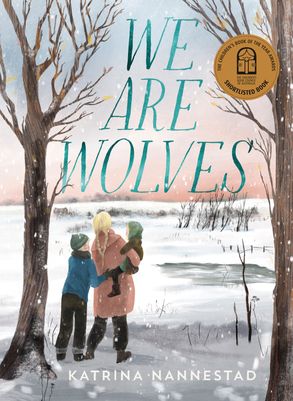
We Are Wolves







Sometimes it's good to be wild. Sometimes you have to be wild.
At the end of World War II, the Wolf family is forced to flee their home in East Prussia.
In their attempts to outrun the Red Army, three siblings, Liesl, Otto, and baby Mia, become separated from their mother and are forced
to fend for themselves in the forest. Liesl, the eldest, promised her mama that she would keep her siblings safe.
She will do whatever it takes to stay together until they are reunited with their mother.
They come to realize that they are not the only German children that have become Wolfskinder, living wild in the forest.
In order to survive, sometimes they must do dangerous things. Bad things.
They must become wolves.
In the midst of a hard winter and in the aftermath of war, the Wolf children display incredible resilience, bravery and ingenuity in order to survive. They grapple with the moral dilemmas of wartime, ideas of enemies and nationhood, and the perils of hiding your identity.
Other themes in the novel include:
* the power of storytelling
* growing up
* coming of age
* belonging
* personal identity
Q & A with author Katrina Nannestad about We Are Wolves
Question: How did you feel when you were writing the story?
Katrina: "My characters become very real to me when I’m writing a story. We Are Wolves is set during a terrible time in history and Liesl, Otto and Mia did suffer, so there were times when I felt sad. I cried more than once. But I also had many times where I felt happy. Mia made me smile when she rubbed food in her hair or stuck it down her ear. Otto made me laugh when he was impulsive or said funny things. And I felt happy when the Wolf children met people who showed them great kindness."
Question: Do you enjoy writing?
Katrina: "I love escaping into the world of my story. When I’m writing, my house and family disappear and I only see and feel the world I am creating. I love that I can create whole new characters and places and I’m in total control of them. This makes me feel quite powerful! And I love playing with words".
Question: Do you think you will write a sequel?
Katrina: I don’t plan to. I would like the Wolf children to carry on with their own lives, without me. If I write another novel about this time in history, I think it will be about a child or children from another country. I think it’s interesting to explore different points of view.
Question: What were you looking for when you found out about the wolf children?
Katrina: I was searching for some stories about Denmark during World War II. I had heard some lovely stories about their King, Christian X, and knew that the Danes had managed to get most of their Jewish citizens to safety before the Nazis rounded them up and took them away. It’s always good to read about kind people!